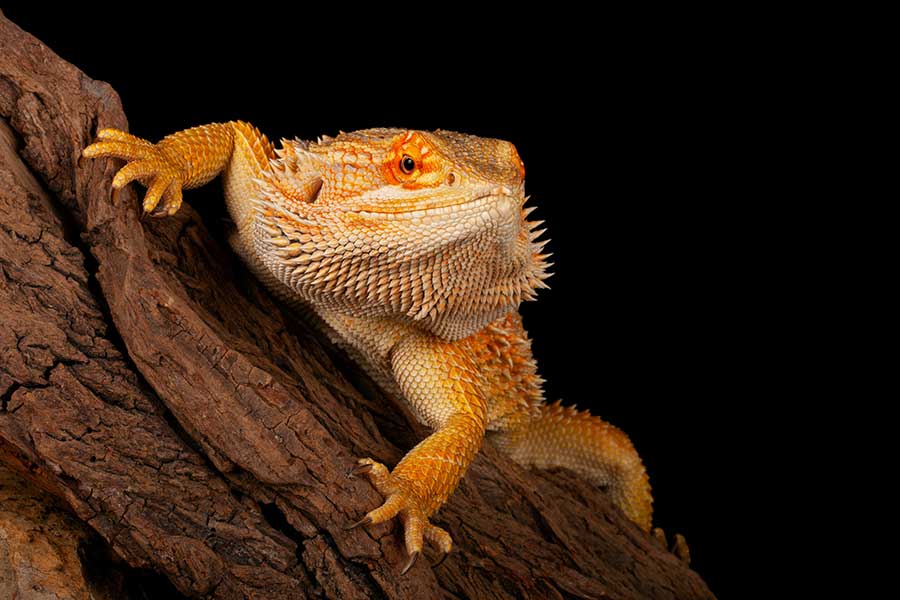Have you ever wondered how to ensure your scaly companion, the bearded dragon, gets the best nutritional support? It’s important to provide a balanced diet to maintain their health and vitality. Alongside a well-rounded meal plan, incorporating the right supplements can be a game-changer in your bearded dragon’s overall well-being.
The Essential Trio: Calcium, Vitamin D3, and Phosphorus
There are various supplements available that you may provide for your scaly companion. Here are the three essential supplements for your bearded dragon:
1) Calcium– calcium serves as a fundamental mineral vital for a bearded dragon’s skeletal health. It’s essential for bone development, strength, and maintenance. Without adequate Calcium intake, these reptiles are susceptible to metabolic bone disease, a severe condition resulting in weakened bones, deformities, and even death.
2) Vitamin D3– this supplement plays a critical role in the absorption of Calcium within a bearded dragon’s body. This vitamin facilitates the utilization of Calcium, ensuring it is effectively absorbed and utilized for bone health. Inadequate levels of Vitamin D3 can hinder Calcium absorption, leading to complications related to bone density and strength.
3) Phosphorus– Maintaining a balance between Calcium and Phosphorus is crucial. While Calcium is important, excessive Phosphorus can interfere with Calcium absorption, creating an imbalance that negatively impacts a bearded dragon’s health. The right ratio between these minerals ensures optimal bone health and prevents disorders associated with imbalances, contributing to the dragon’s overall vitality.
Balancing these three supplements – Calcium, Vitamin D3, and Phosphorus – in a bearded dragon’s diet is paramount. It’s not just about the presence of these minerals but ensuring they are in the correct proportions to support bone health, growth, and overall well-being in these captivating reptiles.
Flavorful Insect Gut Load
Let’s talk about the dietary variety that makes a difference. When your bearded dragon feasts on insects, consider their nutritional intake. The insects they consume should be well-fed themselves. This is where a “gut load” comes in. By feeding insects a nutritious diet, like leafy greens or special gut load formulas, you’re indirectly enhancing your dragon’s diet.
Multivitamin Supplementation: Boost for Your Bearded Dragon’s Overall Health
Think of multivitamins as a safety net. They ensure your dragon gets a bit of everything they need. While a balanced diet covers most bases, a multivitamin supplement can fill potential gaps. Just like we take vitamins for our well-being, this addition can support their immune system, metabolism, and overall health.
Other Key Players: Omega Fatty Acids and Probiotics
Diversity matters, even in supplements. Omega fatty acids are fantastic for skin health and can help combat shedding issues in bearded dragons. Additionally, introducing probiotics occasionally aids in maintaining a healthy gut flora, promoting better digestion and nutrient absorption.
The Importance of Moderation and Consultation
Before diving into supplement administration, remember: moderation is key. Over-supplementation can lead to imbalances or health issues. Also, a consultation with a reptile veterinarian is invaluable. They can tailor advice based on your dragon’s specific needs and health status.
Key Takeaways
Ensuring your bearded dragon’s thriving health involves a comprehensive dietary strategy that includes essential supplements like calcium, Vitamin D3, and phosphorus to collaboratively support bone health, and insect gut load, multivitamins, omega fatty acids, and probiotics, significantly enhancing their nutritional intake. Achieving a balanced mix, maintaining moderation, and seeking veterinary guidance are crucial components for a tailored and vibrant dragon.
